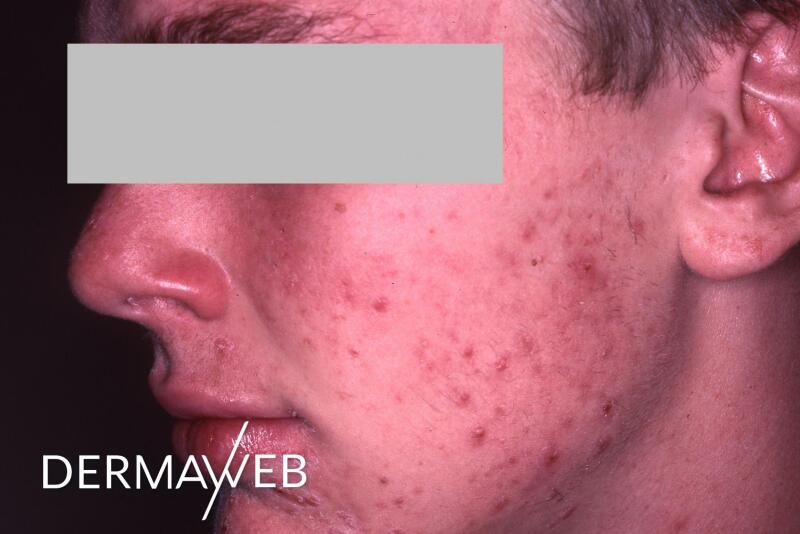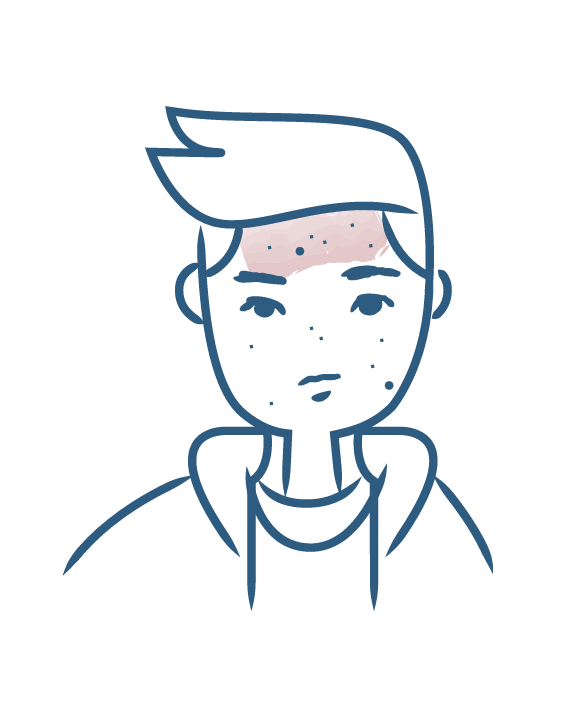-
Your concerns
Our articles to help you gain a better understanding
-
Our solutions
-
Ducray Dermatological laboratories
Our articles to help you gain a better understanding

Acne is a skin condition marked by hyperseborrhea, follicular, retentional (comedones) and/or inflammatory lesions (papules, pustules and nodules) in areas with a high concentration of pilosebaceous follicles. Depending on the level of skin damage, particularly the face, acne is classified as mild, moderate, severe or even highly severe.
This is an acne type in which entire the face is affected by the disease. The various types of acne spots are present, both retentional lesions (blackheads and whiteheads) and inflammatory lesions (papules, pustules, nodules). Other parts of the body are also often affected, such as the back.
Approximately 15% of acne sufferers have severe acne: mainly teenagers with juvenile acne, but also adults. Severe acne tends to affect boys more than girls and a family history of acne is often at fault.
Severe acne increases the risk of acne-related scars. This is why you are strictly advised to not "fiddle" with spots. To get rid of severe acne and avoid scarring, it is best to start treatment quickly.
Severe acne can have significant effects on your quality of life and day-to-day living. Teenagers with severe acne may suffer from fear of others staring and of what they might say, isolation, loss of self-confidence, and difficulties at school. People with severe adult acne may also experience a loss of self-confidence or even bouts of depression.
What should I do if I have severe acne? First, go and see a doctor. They will suggest an initial intensive treatment, such as an oral antibiotic combined with topical medication. If this fails or if the acne is too severe, the dermatologist will prescribe oral isotretinoin. This severe acne treatment is useful for comprehensive action on acne but tends to irritate and dry out the skin.
There are two types of severe acne creams: compensatory treatments that limit irritation and the drying effects of some severe acne medication, particularly oral isotretinoin; and creams rich in active ingredients that reduce residual marks caused by severe acne.
Oily or acne-prone skin

Oily or acne-prone skin
NEWSLETTER
Dermatological expertise
To better understand your skin and hair, discover our exclusive content and innovative care products designed to improve your quality of life..